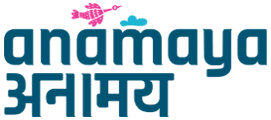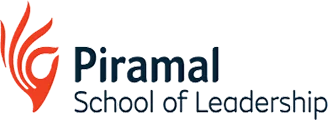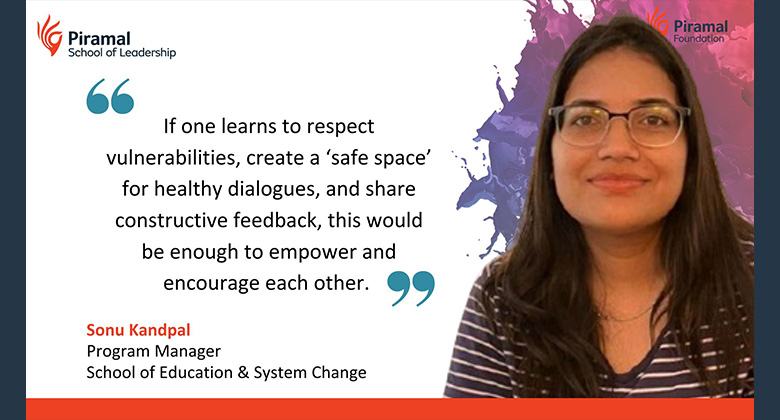
Personal agency is about empowering oneself involving intentional actions and deliberate choices to navigate through life’s challenges. It is about developing autonomy, self-efficiency, and proactive engagement with the community. It develops when an individual takes the initiative and exercises self-discipline. While demonstrating ‘self-discipline’ one applies ‘critical thinking’ for ‘self’ & ‘others.’ But how does critical thinking work? Simply, when a person places ‘trust’ in ‘oneself’ and ‘others’, that trust reflects in the form of open communication, mutual respect, and the space for healthy dialogues.
A couple of years back, like every graduate, I was at crossroads while choosing a career path. There were numerous lucrative career options, but I chose to join the non-profit sector. There was no one to validate my decision, not even family.
In June 2018, I officially became part of a community I had heard so much about through the university network. In the next few days, I got an opportunity to attend a 10-day-long induction. I wasn’t convinced enough during the 10-day induction, so I decided to research the organization online. When I landed on the official website, the first thing that attracted me was the tagline – “Self-change to System change”. I, instantly, got the message – but, like many others, I was out of my comfort zone. It was a time to challenge all my social conditioning and biases.
The fact is that we are often dormant by societal norms over time. After interacting with peers, I found out that many of us faced similar conditioning so much that we had forgotten to behave normally and enjoy life as it is. The gender-neutral language was no more acceptable in the society. Similarly, education was confined to memorizing and getting good marks. Deep down, I had some unaddressed queries that challenged the existing social constructs and biases and refused to conform to such social conditioning.
Recently, in March 2024, I attended the PM Rise Boot camp at Piramal School of Leadership. This time I joined a cohort of professionals who came from diverse backgrounds but shared a common goal – to bring about social change by working on Self. This time I realised how much I had grown; I enjoyed participating in games and other activities without any fear of being judged. This made me reflect on how different life would have been for me had I not made this choice. I also discovered similar life experiences from my peers. They made hard choices to reach a place where the common objective is to serve society and unlearn social biases.
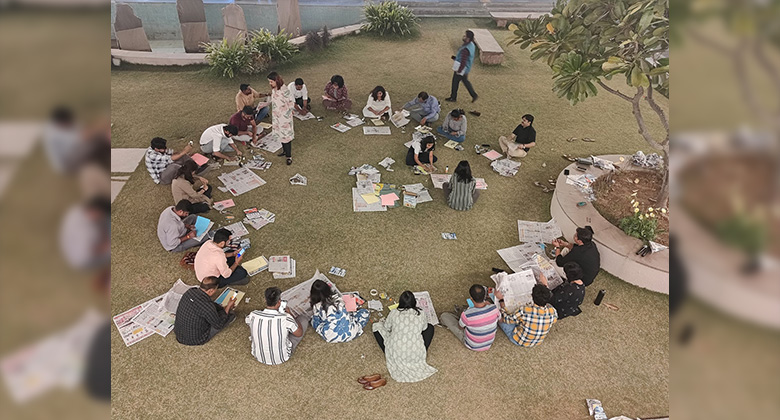
How we transcended beyond theories in PM Rise Bootcamp -
“You can’t be in the society if you don’t want to change the society”
Augusto Boal
Leaders argue that Individual empowerment leads to Societal change. Those who consider themselves part of the system can bring about meaningful change simply because they drive from a connection i.e. belongingness with the system.
Theatre Games
In the ‘image theatre’ activity, we were asked to depict ‘emotions’ using only non- verbal cues. My group was assigned ‘Love.’ Excited to create a powerful and unique image, we brainstormed different ways to convey love. But we realized each of us had a different interpretation of what love would look like. Despite our best efforts, we struggled to create a cohesive image. Finally, we settled on a simple depiction. We stood in a line, holding hands, formed the shape of a heart. As we froze and audience was allowed to guess. People guessed it after multiple attempts. Maybe many of us were acquainted with the form of depiction as it was an easy, simple emotion that has enormous force to build a community, and the message planned was delivered.
Another group depicted ‘frustration’. I had always associated frustration with loud expressions of anger and distress. However, this group portrayed frustration differently. It was quiet and subtle, which made me realize that people have a way of expressing their emotions. And I could personally connect with this depiction.
While participating in the ‘image theatre’ game, I felt like levelling up in empathy, compassion, and acceptance. It was a powerful reminder of the importance of understanding and appreciating the diverse ways in which people express themselves.
To explain how lack of communication among the team members affects the outcome of a certain project, we performed another activity where everyone in the group tried to add value to the collective act without discussing/knowing his/her role and responsibility. Four groups enacted this and most of us ended up in a total mess. When asked to share their individual thoughts afterward, each member had a different perspective. This exercise highlighted the negative role of lack of communication in building trust and relationships.
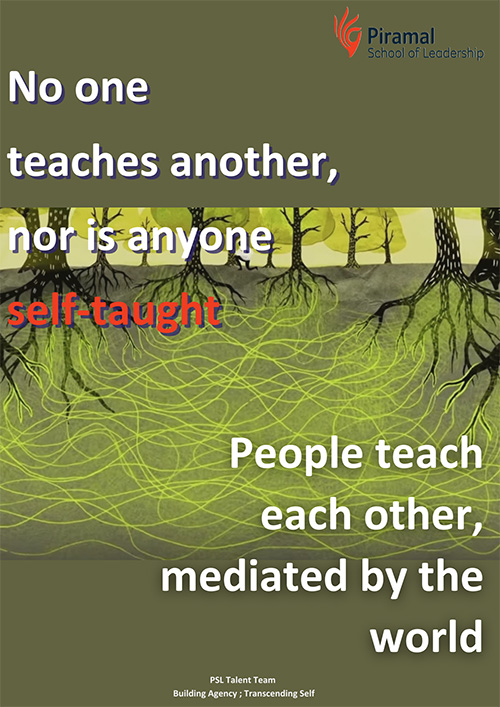
Another activity was ‘forum theatre’ in which difficult conversations were simulated, with one person gradually feeling oppressed while the other acted as an oppressor. The audience could intervene by saying “stop” and replace the person they felt was being oppressed. The person who stopped the act took on the responsibility of the character he replaced, potentially changing the course of conversation, and empowering the oppressed. This helped participants experience the other side of a situation by playing role reversals. The reflection of our group was that owning responsibility is crucial for the agency. We learned to intervene and take responsibility as the entire plotting was done with a deliberate choice to make the group reflect on owning responsibility.
Takeaway from this Learning Journey
While the journey of recognising social biases and questioning illogical constructs is going on, learning the skills that help in building the ‘personal agency’ remains a critical aspect of the equation. I realise, if one simply learns to respect vulnerabilities, create a ‘safe space’ for healthy dialogues, place trust, and share constructive feedback, this would be enough to empower and encourage each other.
TAGS
SHARE

